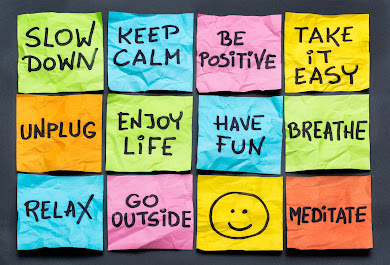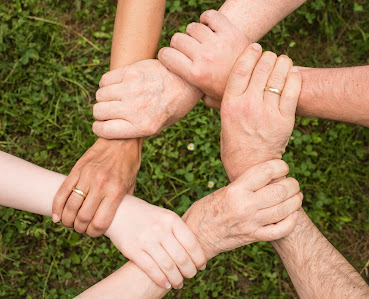Weight control 🌵and Lifestyle Medicine🌿-Part 9 Positive Psychology😇
Thank you for joining me for the last part of this series on Weight control, but remain positive🌷, as all things I discuss in Lifestyle Medicine reflect in controlling our weight. So, let’s get started. Positive Psychology revolves around the aspect of Psychology that define a productive and inclusive approach to our mental health, that allows us to move together as a society in a creative and healthy way. We include pleasure, engagement and finding meaning in life to be goals and certain practices within our present thinking that lead toward a more fulfilling and flourishing Lifestyle. Positive psychology is an essential part of Lifestyle medicine practice and weight control, as what we believe and see as possible can lead to attaining a more functional and effective approach to weight control. To explore our strengths and virtues is essential in this practice. This is a very powerful tool. Just getting through the day may be fine for people who travel that path, but I want far more. I want you to flourish.
Flourishing as a person is so important❗️By using tools of positive psychology in relation to weight control, you can change your world 🌏 in many ways. Examples include:
·
How you approach eating in your own home🏡,
workplace 🏗 and organisations 🏦
you are involved in. Optimal functioning in your planning of meals🍲. Educating those you feed in the family about
good nutrition 🫐, exercise🚶🏽,
sleep💤, social connection
👨👩👧👦, alcohol 🍷use
minimalization, drug avoidance and positive psychology
😇, being a climate change advocate and your own self
compassion all make you an ambassador for the change we need. Then we all
flourish together. Whenever conflicts are better resolved, there is more peace
and co-operation. Kind positive words will always do this better than growling
at each other. When we are more supported, we become more productive. In
environments that foster these qualities, we can use our talent and hard work
to change the world.
· Within our communities we can come closer and build more resilience through coping with adversity better.
Be patient and look for opportunities to apply this thinking to weight control. Try to spend more time in your day concentrating on the strengths you possess. The more you do this and apply it to the above examples, the more you will thrive. Don’t be overwhelmed by this, take it a day at a time.
Before I became a Lifestyle Medicine practitioner and
Podiatrist, I was a professional Ballet dancer![]() .
I mention this because of my desire to share the concept we know as practice.
Over many years I practised the principles of Classical Ballet every single day
of the year. It took time to become an advanced practitioner of ballet, as you
dancers out there would agree. But I encourage you to believe in the principles
of weight control and practice them daily. The more parts that we have
discussed that you practice, the more you will see wonderful change in your life,
as you become the inventor of your future. You take personal responsibility for
it. For this reason, your success awaits you, as you only rely on yourself for
the result.
.
I mention this because of my desire to share the concept we know as practice.
Over many years I practised the principles of Classical Ballet every single day
of the year. It took time to become an advanced practitioner of ballet, as you
dancers out there would agree. But I encourage you to believe in the principles
of weight control and practice them daily. The more parts that we have
discussed that you practice, the more you will see wonderful change in your life,
as you become the inventor of your future. You take personal responsibility for
it. For this reason, your success awaits you, as you only rely on yourself for
the result.
Don’t be afraid. Another example of ballet training was the social integration and privileged support I received from some of the best ballet teachers in the world. This social integration made me search for the best evidence-based nutrition, sleep well, remain socially connected to my family and friends and avoid alcohol and other addictive substances so I could be the best version of myself. When you think positively about nutrition and the environment, you may consider the following positive attributes of eating: A vegetarian 🥦🥚🧀 diet can reduce your diets carbon emissions by 30%. If you are 2/3 vegan 🥦 🥚 reduce them by 60%, followed by full vegan 🥦 reduction by 85%. If you ride share or walk🚶🏽/run or bicycle🚴🏽 to work, you avoid extra carbon emissions while improving your health at the same time. Practicing Lifestyle Medicine principles lower your carbon footprint by requiring fewer medical services in the future due to your higher quality of life and lower risk of chronic disease. Including these topics in your prayer and meditation allow you to practice more gratitude, our next topic.
Gratitude🙏
Gratitude is among the most important forms of positive
psychology😇, as you are magnifying your concentration on
the very things that make life so precious. In times where our mood may be
moving towards feeling of sadness or stress, bringing our mind to a place of
reflection on our gratitude for the beautiful things in life is very powerful.
Even concentrating for 30 seconds on our breathing and exploring the miracle
that each of those breaths we take are supporting life for us every nanosecond
of the day. Then we can think about all the muscles💪🏽
in breathing, all the blood vessels and physiological microstructures in our
lungs that feed us with the nutrition of fresh air and expel the carbon dioxide
that we can then allow the plants and trees to breathe. Our gratitude to the
farmers 🧑🏼🌾
who grow the beautiful whole food plant-based nutrition 🌿that
we consume daily. Gratitude for the wonderful journey we have made to living
the best version of ourselves; gratitude for knowing that we can then be the
best version of ourselves, to look after our children👶, friends👯,
spouses👫, community
🤼♀️, nature 🏝 and our planet
🌍. These may all be good suggestions, but back to a plie tendu![]() ,
or any other ballet practice, the magic is in the practice. Make up nice rhymes
to practice such as “Every day, in every way, I am getting better and better
and better”. Attention to long term practice and belief in your own
capabilities to change is essential. But we will take micro steps together.
Remember it’s not about having all the answers today, but more about the love
for a better Lifestyle and the curiosity to always look for better research and
better practice of the basic principles of Lifestyle Medicine. Right at this
moment in time you are doing really well. How do you feel?
,
or any other ballet practice, the magic is in the practice. Make up nice rhymes
to practice such as “Every day, in every way, I am getting better and better
and better”. Attention to long term practice and belief in your own
capabilities to change is essential. But we will take micro steps together.
Remember it’s not about having all the answers today, but more about the love
for a better Lifestyle and the curiosity to always look for better research and
better practice of the basic principles of Lifestyle Medicine. Right at this
moment in time you are doing really well. How do you feel?
Self-compassion 💓
Be a good friend to yourself 🥰 and don’t be too critical. Be kind to yourself. Assure yourself that even if you go off track occasionally, you will find your way back soon. Sometimes we can punish ourselves unfairly. Try and speak to yourself the same way you do when talking to those you love.
Make your goal setting realistic!
Build your goals into your own life, and base them on good evidence only. Just because someone pressures you into change based on what Google said or what is fashionable does not make it evidence based. Examples are exercise and nutrition. Often but not always, exercise goals are written by big business for their profit seeking in mind. Be cautious about some diets promoted by big businesses. More than often, there is little if no Evidence based medicine on their claims. So, work out goals in all your pillars of lifestyle Medicine that work for you. If you need further help, seek out a qualified lifestyle medicine practitioner or physician to coach you.
Positive self-talk and journaling 📜
The way we talk to ourselves, as mentioned above, makes a huge difference in the way we feel. Set some tiny goals each day and write a journal to reflect your thinking on the day. For instance: “Today I didn’t eat any processed food in my diet, and every nanosecond of the day my body flourished on better nutrition, including that extra cabbage I ate today”. Or “That 20-minute walk today made me feel awake and happier, I know that is good for my health in the short and long term too”.
I believe we should feel that we all matter, and see ourselves as part of a unified consciousness, travelling on a road of inclusiveness🌎, no matter what our race, religion or beliefs. To respect each other is the path to global healing, and the right to be accepted and included is the only humanitarian way of effective lifestyle medicine practice. Therefore, lets join hands and proceed with pride, courage and bravery.
References
1. Hull, S. C., Charles, J., & Caplan, A. L. (2023). Are we what we eat? the moral imperative of the medical profession to promote plant-based nutrition. The American Journal of Cardiology, 188, 15-21. doi:https://doi.org/10.1016/j.amjcard.2022.10.006
2. Harbaugh, C.N. and Vasey, M.W., 2014. When do people benefit from gratitude practice?. The Journal of Positive Psychology, 9(6), pp.535-546.
3. Voci, A., Veneziani, C.A. and Fuochi, G., 2019. Relating mindfulness, heartfulness, and psychological well-being: The role of self-compassion and gratitude. Mindfulness, 10, pp.339-351.
|
4. Lee Duckworth, A., Steen, T.A. and Seligman, M.E., 2005. Positive
psychology in clinical practice. Annu. Rev. Clin. Psychol., 1,
pp.629-651. 5. Peterson, C. and Park, N.A.N.S.O.O.K., 2011. Character
strengths and virtues: Their role in well-being. Applied positive
psychology: Improving everyday life, health, schools, work, and society,
pp.49-62. |


Comments
Post a Comment